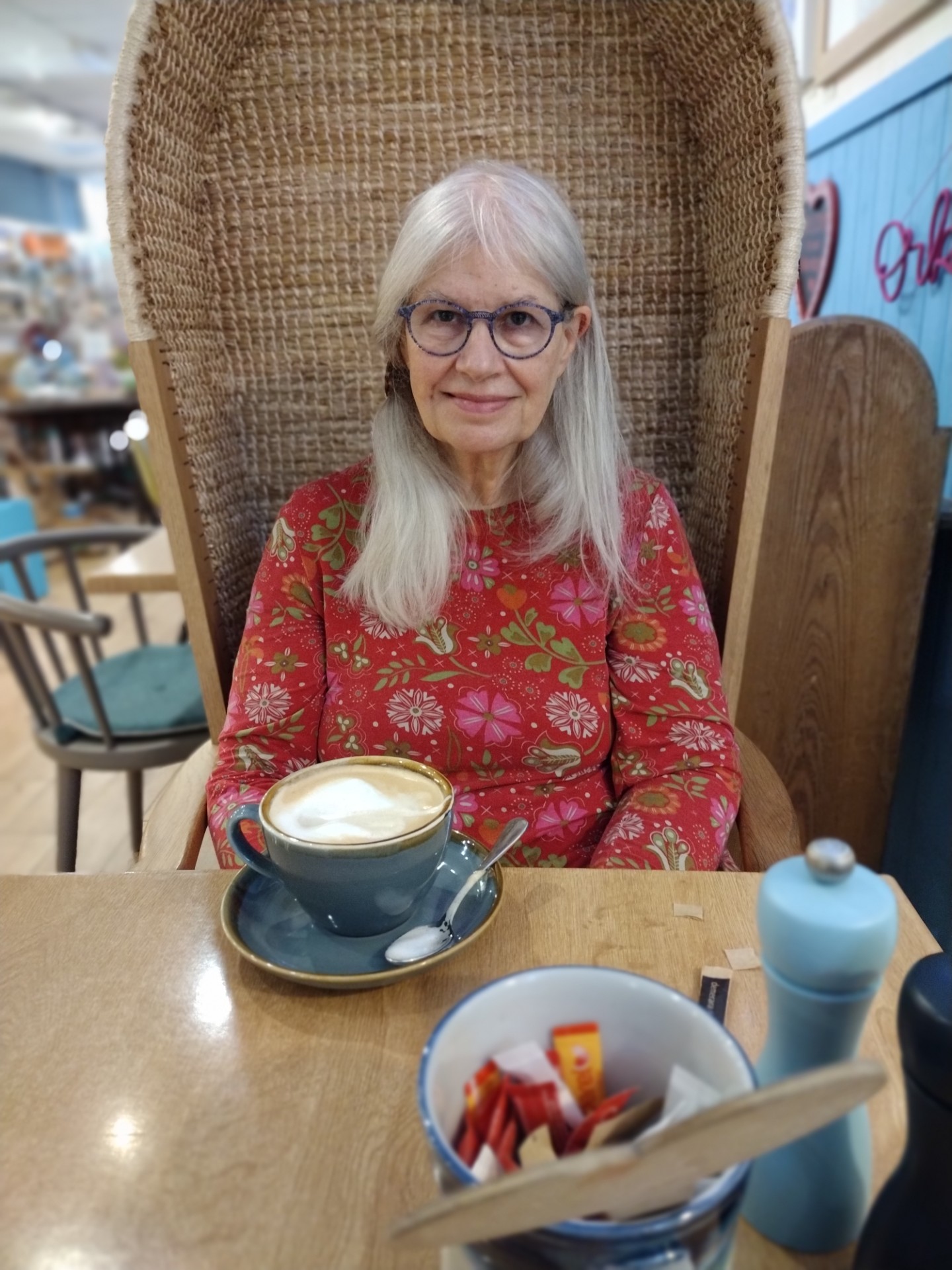Study Filmmaking in Scotland: UHI student goes behind the scenes on BBC’s Shetland
As part of her BA (Hons) Contemporary Film Making in the Highlands and Islands degree, mature student Jane Darby gained hands-on experience on the set of the acclaimed BBC Scotland drama Shetland. In this Q&A, Jane, who studies remotely from her home in Shetland, shares what it was like to shadow the crew, how the experience deepened her knowledge of filmmaking, and why it’s reaffirmed her passion for storytelling.
How did your work experience come about?
Our Programme Leader Anna McPherson arranged for Shetland-based students to spend a day shadowing the director of Shetland.
Describe your day with the production crew...
Before arriving, I was sent the script, cast details and schedule from the production co-ordinator, which gave me a good insight into the industry-standard materials in place for a shoot. I also had to sign a disclaimer not to reveal the storyline. When I arrived at Brae Public Hall for filming, I met the production designer and director who told me about their role.
They filmed two scenes on the day – one outdoors using a dolly on steel tracks to capture the main character, DI Mackintosh, or ‘Tosh’ as she is known on the show, walking towards a suspicious car before closing in on the expression on her face. I was impressed by the amount of equipment needed to make a shot seem natural and effortless. The second scene was indoors, where Tosh goes to comfort a boy looking out of a window at a couple arguing. In this scene, the crew used audio of the couple arguing to build context around the acting. After each take, the director and crew reviewed the footage. 10 copies of every shot are sent daily to the production studio in Glasgow.
It was interesting to learn more about working with child actors. This episode featured a child actor, and his mum accompanied him everywhere on the set. She also told me that he had a tutor in attendance and was keeping up with schoolwork. He had been selected from thousands of child actors in a special audition process, that considered both talent and emotional resilience.
What was the most memorable moment?
I remember the way the director spoke to an actor who was playing a father. At this point in the story, this character was in a high state of distress. The director coached him to express the precise emotion needed for the short entrance. Coaching so close to the action really paid off in terms of the performance.
How did your knowledge and skills from the course help you?
Over the years, we have had many opportunities to make our own films in both drama and documentary- albeit on a much smaller scale with less sophisticated equipment. Each time, we’ve followed the process from beginning to end; from initial idea to planning, execution, editing (post-production) and delivery, so we have been equipped with a knowledge of the journey. The experience of being on a professional film set has been transformational. Not only did I get the chance to observe how things are done and learn about the many different roles involved, but I also saw how much the work depends on strong, respectful working relationships. The director is the captain of the ship, and I observed genuine respect among the crew. Everyone understood their role and worked smart.
As students, it can feel strange to break a drama into small elements and film events out of sequence, but this is exactly how films are made. The giant mosaic is pieced together at the end during editing.
How has this experience influenced your perspective on filmmaking?
It was exciting to be on the set of such a popular drama about Shetland, the place where I live. I’ve followed the evolution of the show from the very beginning. Everyone I met on set was genuinely friendly and happy to share their perspective.
I was able to interact with camera operators, costume, hair and makeup professionals, sound engineers, line editors, and extras. It brought home the exacting nature of filming a TV drama and how everyone on set is collectively responsible for the final product. It’s about collaboration and looking out for one another.
What impact has the experience had on your future aspirations?
I am very interested in developing stories through scriptwriting. Seeing the care that this team put into a faithful interpretation of the script before them was very encouraging. The whole cast and crew must live that story every day.
What was the most valuable thing you learned on set?
That everything in filmmaking has industry standards and practises which must be followed. Working on a set can be quite rigorous, but as a person with a disability, I always felt respected and included.
What surprised you?
I had a good few chats with Alison O’Donnell, the actor who plays Tosh, which was a bonus, and the calibre of the child actor was phenomenal. When not in front of the camera, he appeared to be content engaging with everyday activities. I was also surprised to learn about the global sales of the series - who would have thought at the start that there would be so much interest in a group of remote islands in the North Sea?
Jane studies BA (Hons) Contemporary Film Making in the Highlands and Islands online from her home in Shetland. She’s currently producing a documentary about the Italian Chapel in Orkney for her Major Film Project.
Inspired by Jane’s experience? Study Film at UHI North, West and Hebrides and gain hands-on experience in real industry environments like Jane.
